Description
ABSTRACT
Corporate Liquidation and the Effect on Employment Contracts: The Supreme Court Setting the Tone in Gbedu v Itie
Sixtus Iwuoha*
A company’s insolvency may prove traumatic for employees, especially those who have invested years of effort and skill in the enterprise. Shareholders and creditors alike invest money in companies in anticipation that such companies will remain a going concern and enhance their economic well-being. Likewise, employees seek employment in these companies to gain a source of income. This income would facilitate and enhance their economic well-being, provide for their relations and meet their living costs. Job satisfaction and security are regarded as important aspects of life. Upon insolvency, employees face the prospect of having their economic well-being in terms of job security and income interrupted and face the possibility of having their employment terminated where their employer (the company) is liquidated. Where a company becomes insolvent or is at the risk of insolvency, the effect of such upon the employees is worthy of consideration because if the business is rescued as a going concern, then the hope will be that most, if not all, jobs will be saved. In an epoch-making decision, the Supreme Court in Gbedu v Itie considered the effect of a compulsory winding-up on contracts of service between a company and its employees. This article examines the decision of the apex court against the backdrop of its unique facts. It thereafter attempts to unpack the underlying issues worthy of note in this somewhat grey area of law.
Keywords: Corporate Insolvency, Contract of Service, Corporate Employees, Company Law, Liquidation, Winding-up.
INTRODUCTION
Winding-up or liquidation is the process by which the management of a company’s affairs is taken out of its directors’ hands, its assets are realized by a liquidator, and its debts and liabilities are discharged out of the proceeds of realization (so far as they are sufficient for the purpose), and any surplus of the company’s assets which remain is returned to its members or shareholders. At the end of the winding-up, the company will have no assets or liabilities. Therefore, it will be simply a formal step for it to be dissolved, that is, for its legal personality as a corporation to be brought to an end.1 Put differently, the winding-up of a company is the process whereby its life is ended and its property administered for the benefit of its creditors and members. An administrator called liquidator is appointed, and he/she takes control of the company, collects its debts and finally distributes any surplus among the members in accordance with their rights.2
* * LL.B (Nigeria), BL, LL.M (Canada). The author is an Associate in the Litigation, Arbitration and ADR Practice Group of Banwo & Ighodalo, a first-rate commercial law firm in Nigeria. The author would like to thank Onyinyechi Iwuoha for her helpful review and comments on the initial draft. kin*********@*******************du.ng
- Pennington’s Company Law (5thedn, Butterworths 1985) 839.
- LCB Gower, Principles of Modern Company Law (4 edn, Sweet & Maxwell 1979) 789.

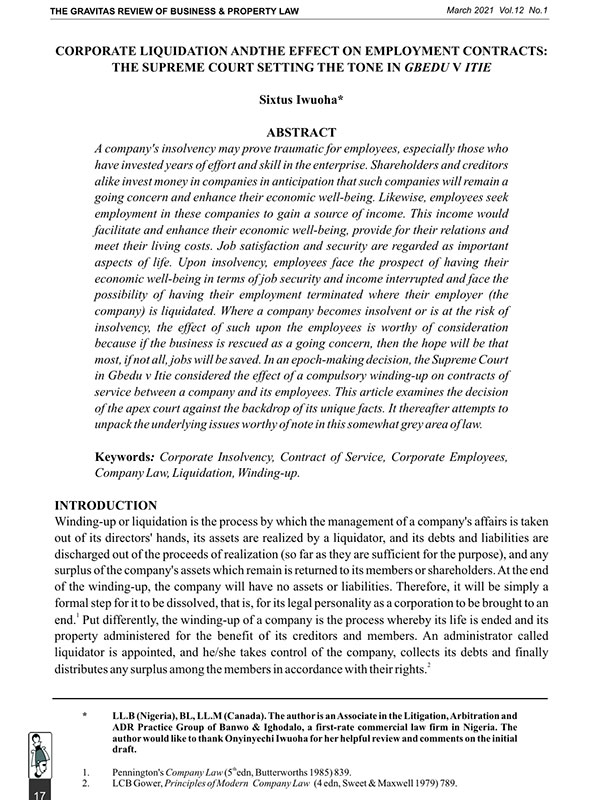
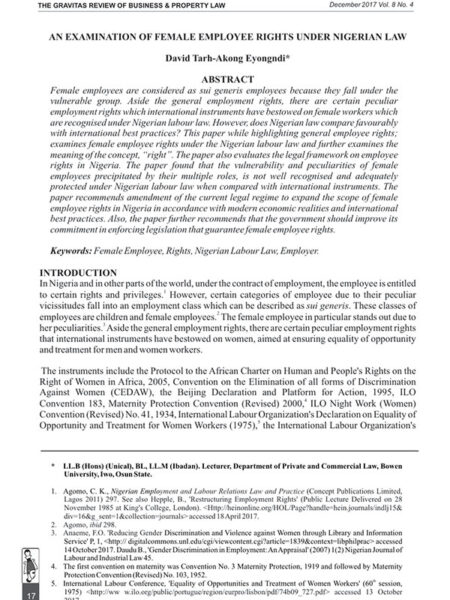
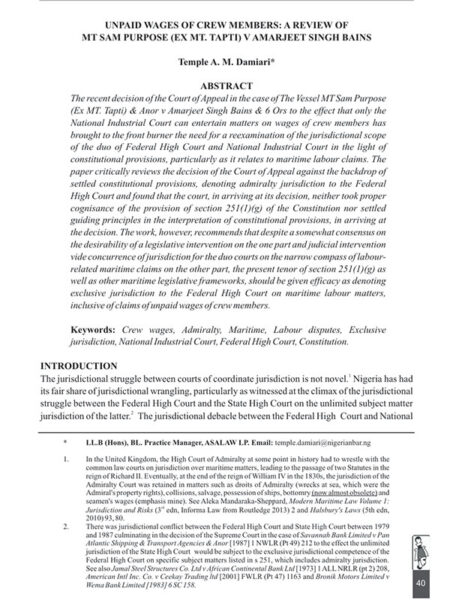
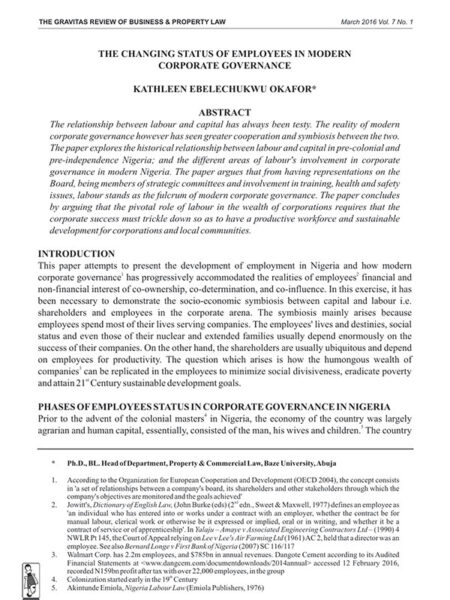
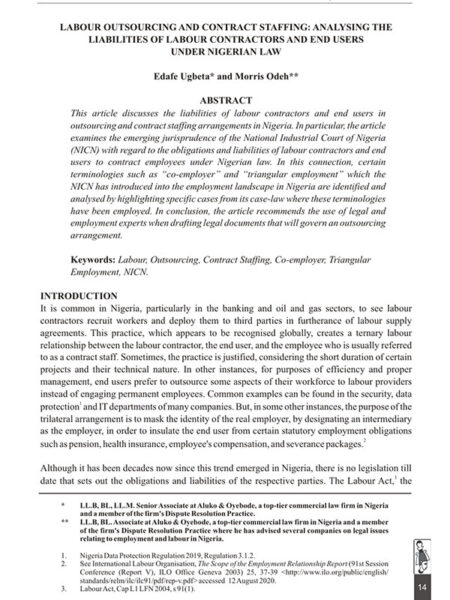


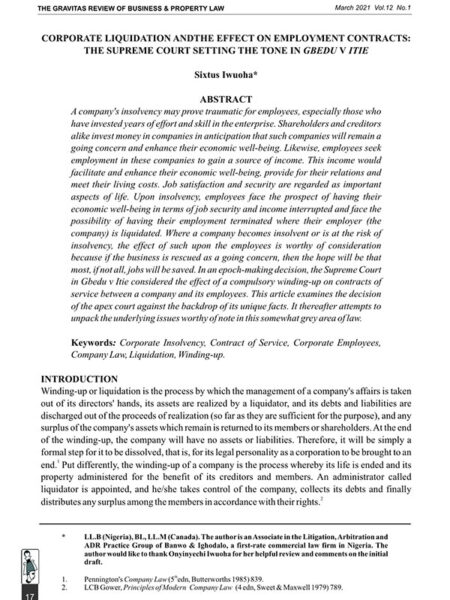
Reviews
There are no reviews yet.